bio
-
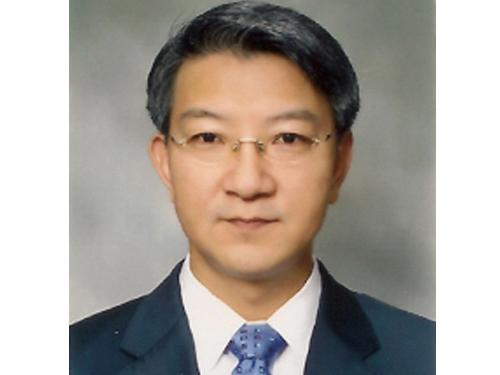 Distinguished Professor Sang Yup Lee Accepts an Honorary Professorship at Beijing University of Chemical Technology
Distinguished Professor Sang Yup Lee of the Department of Chemical and Biomolecular Engineering at KAIST has been appointed an honorary professor at Beijing University of Chemical Technology (BUCT). Founded in 1958, BUCT is one of the outstanding universities in mainland China, especially in chemistry studies.
In addition to the Chinese Academy of Sciences (2012), Shanghai Jiao Tong University (2013), Wuhan University (2014), and Hebei University of Technology (2014), this is the fifth honorary professorship Professor Lee has received from higher education institutions in China.
Professor Lee was recognized for his pioneering research in systems metabolic engineering of microorganisms necessary for the development of green chemical industries. He succeeded in producing succinic acid through bacterial fermentation and engineering plastic raw materials in the most effective and economical method for the first time in the world. Professor Lee also developed polylactic acid, a bio-based polymer that allows plastics to be produced through natural and renewable resources, as well as the microbial production of alkanes, an alternative to gasoline that can be produced from fatty acids.
Professor Lee has been actively working as a member of a group of global leaders supported by the World Economic Forum (WEF), serving as the Chairman of the Future of Chemicals, Advanced Materials & Biotechnology, Global Agenda Councils, WEF.
2014.11.13 View 11712
Distinguished Professor Sang Yup Lee Accepts an Honorary Professorship at Beijing University of Chemical Technology
Distinguished Professor Sang Yup Lee of the Department of Chemical and Biomolecular Engineering at KAIST has been appointed an honorary professor at Beijing University of Chemical Technology (BUCT). Founded in 1958, BUCT is one of the outstanding universities in mainland China, especially in chemistry studies.
In addition to the Chinese Academy of Sciences (2012), Shanghai Jiao Tong University (2013), Wuhan University (2014), and Hebei University of Technology (2014), this is the fifth honorary professorship Professor Lee has received from higher education institutions in China.
Professor Lee was recognized for his pioneering research in systems metabolic engineering of microorganisms necessary for the development of green chemical industries. He succeeded in producing succinic acid through bacterial fermentation and engineering plastic raw materials in the most effective and economical method for the first time in the world. Professor Lee also developed polylactic acid, a bio-based polymer that allows plastics to be produced through natural and renewable resources, as well as the microbial production of alkanes, an alternative to gasoline that can be produced from fatty acids.
Professor Lee has been actively working as a member of a group of global leaders supported by the World Economic Forum (WEF), serving as the Chairman of the Future of Chemicals, Advanced Materials & Biotechnology, Global Agenda Councils, WEF.
2014.11.13 View 11712 -
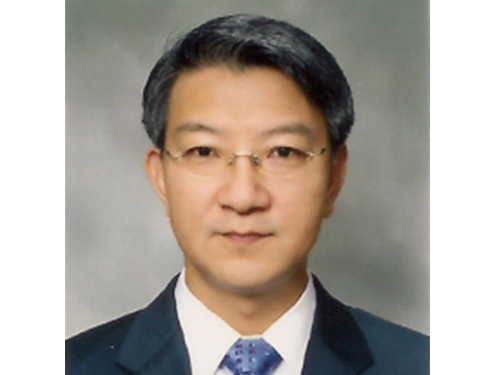 Wuhan University, China, Appoints Distinguished Professor Sang Yup Lee as Honorary Professor
Sang Yup Lee, Distinguished Professor of the Department of Chemical and Biomolecular Engineering at KAIST, has been appointed an honorary professor at Wuhan University in Hubei Province, China. This is the third time that Professor Lee has received an honorary professorship from Chinese academic institutions. The Chinese Academy of Sciences appointed him an honorary professor in 2012, and Shanghai Jia Tong University asked him to serve as an advisory professor in 2013, respectively.
Professor Lee was recognized for his pioneering research in systems metabolic engineering of microorganisms necessary for the development of green chemical industries. He succeeded in producing succinic acid through bacterial fermentation and engineering plastic raw materials in the most effective and economical method for the first time in the world. Professor Lee also developed polylactic acid, a bio-based polymer that allows plastics to be produced through natural and renewable resources, as well as the microbial production of alkanes, an alternative to gasoline that can be produced from fatty acids.
Professor Lee has been actively working as a member of a group of global leaders supported by the World Economic Forum (WEF), serving the Chairman of the Future of Chemicals, Advanced Materials & Biotechnology, Global Agenda Councils, WEF.
Wuhan University is a comprehensive and key national university selected by the Chinese government as a major recipient of state funding for research. It is also known as one of the most beautiful campuses in China.
2014.10.20 View 9523
Wuhan University, China, Appoints Distinguished Professor Sang Yup Lee as Honorary Professor
Sang Yup Lee, Distinguished Professor of the Department of Chemical and Biomolecular Engineering at KAIST, has been appointed an honorary professor at Wuhan University in Hubei Province, China. This is the third time that Professor Lee has received an honorary professorship from Chinese academic institutions. The Chinese Academy of Sciences appointed him an honorary professor in 2012, and Shanghai Jia Tong University asked him to serve as an advisory professor in 2013, respectively.
Professor Lee was recognized for his pioneering research in systems metabolic engineering of microorganisms necessary for the development of green chemical industries. He succeeded in producing succinic acid through bacterial fermentation and engineering plastic raw materials in the most effective and economical method for the first time in the world. Professor Lee also developed polylactic acid, a bio-based polymer that allows plastics to be produced through natural and renewable resources, as well as the microbial production of alkanes, an alternative to gasoline that can be produced from fatty acids.
Professor Lee has been actively working as a member of a group of global leaders supported by the World Economic Forum (WEF), serving the Chairman of the Future of Chemicals, Advanced Materials & Biotechnology, Global Agenda Councils, WEF.
Wuhan University is a comprehensive and key national university selected by the Chinese government as a major recipient of state funding for research. It is also known as one of the most beautiful campuses in China.
2014.10.20 View 9523 -
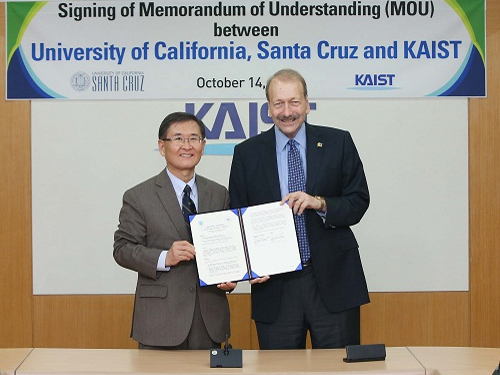 KAIST and University of California, Santa Cruz, Agree to Cooperate
KAIST and the University of California in Santa Cruz signed a memorandum of understanding (MOU) at the KAIST campus on October 14, 2014.
The two institutions agreed to cooperate in the following four areas:
- Research collaboration in genomics and biology
- Academic exchanges in engineering and information communication technology
- Student and faculty exchange programs
- Joint academic workshops and seminars
Following the MOU signing ceremony, Dr. George Blumenthal, the Chancellor of UC Santa Cruz, held a special seminar for KAIST students and faculty, during which he shared some of the success stories made through UC Santa Cruz’s close cooperation with companies in Silicon Valley.
President Steve Kang of KAIST praised the MOU saying, “KAIST and UC Santa Cruz have top-notch research professionals, and the MOU will reinforce their research capability. We hope that the two universities will carry out many research projects that bring significant impact on the world.”
UC Santa Cruz was established in 1965 as a public research university committed to undergraduate education. The university has a total student population of 16,000 (15,375 undergraduates and 1,378 graduates). Offering 60 undergraduate majors, UC Santa Cruz's faculty includes six recipients of Pulitzer Prizes and five MacArthur Genius Awards. The university was ranked the 2nd in the world for research influence in 2012-2013 Times Higher Education rankings.
2014.10.15 View 8528
KAIST and University of California, Santa Cruz, Agree to Cooperate
KAIST and the University of California in Santa Cruz signed a memorandum of understanding (MOU) at the KAIST campus on October 14, 2014.
The two institutions agreed to cooperate in the following four areas:
- Research collaboration in genomics and biology
- Academic exchanges in engineering and information communication technology
- Student and faculty exchange programs
- Joint academic workshops and seminars
Following the MOU signing ceremony, Dr. George Blumenthal, the Chancellor of UC Santa Cruz, held a special seminar for KAIST students and faculty, during which he shared some of the success stories made through UC Santa Cruz’s close cooperation with companies in Silicon Valley.
President Steve Kang of KAIST praised the MOU saying, “KAIST and UC Santa Cruz have top-notch research professionals, and the MOU will reinforce their research capability. We hope that the two universities will carry out many research projects that bring significant impact on the world.”
UC Santa Cruz was established in 1965 as a public research university committed to undergraduate education. The university has a total student population of 16,000 (15,375 undergraduates and 1,378 graduates). Offering 60 undergraduate majors, UC Santa Cruz's faculty includes six recipients of Pulitzer Prizes and five MacArthur Genius Awards. The university was ranked the 2nd in the world for research influence in 2012-2013 Times Higher Education rankings.
2014.10.15 View 8528 -
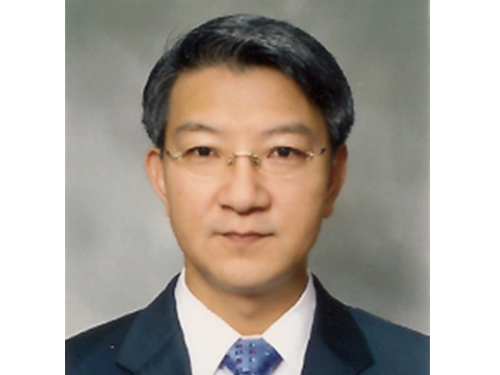 Distinguished Professor Sang Yup Lee Gives Special Lecture at Tianjin University, China
Distinguished Professor Sang Yup Lee from the Department of Chemical and Biomolecular Engineering at KAIST gave a special lecture at Tianjin University, China, on September 12, 2014.
The university has invited prestigious scholars and scientists including Nobel Prize laureates from all around the world to their program called the "BeiYang Lecture Series."
Professor Lee said:
"The lecture series has invited many eminent global leaders such as Dr. Steven Chu, who received the Nobel Prize in Physics in 1997 and also served the 12th United States Secretary of Energy. It is a great honor to participate in the program as a speaker. The university told me that in recognition of my research in the development of sustainable biochemical industry through systems metabolic engineering, I was invited to speak.”
Professor Lee presented his speech entitled “Production of Chemical Materials through Microorganism Metabolic Systems Engineering” and took questions from the audience.
Professor Lee developed the world’s most efficient microorganism and bioprocess such as succinate, butanol, and engineering plastic raw materials. In recent years, he has succeeded in producing a small quantity of gasoline through converting in-vivo generated fatty acids.
2014.09.16 View 9451
Distinguished Professor Sang Yup Lee Gives Special Lecture at Tianjin University, China
Distinguished Professor Sang Yup Lee from the Department of Chemical and Biomolecular Engineering at KAIST gave a special lecture at Tianjin University, China, on September 12, 2014.
The university has invited prestigious scholars and scientists including Nobel Prize laureates from all around the world to their program called the "BeiYang Lecture Series."
Professor Lee said:
"The lecture series has invited many eminent global leaders such as Dr. Steven Chu, who received the Nobel Prize in Physics in 1997 and also served the 12th United States Secretary of Energy. It is a great honor to participate in the program as a speaker. The university told me that in recognition of my research in the development of sustainable biochemical industry through systems metabolic engineering, I was invited to speak.”
Professor Lee presented his speech entitled “Production of Chemical Materials through Microorganism Metabolic Systems Engineering” and took questions from the audience.
Professor Lee developed the world’s most efficient microorganism and bioprocess such as succinate, butanol, and engineering plastic raw materials. In recent years, he has succeeded in producing a small quantity of gasoline through converting in-vivo generated fatty acids.
2014.09.16 View 9451 -
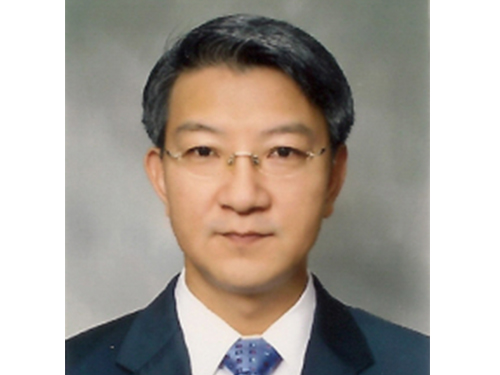 Distinguished Professor Sang Yup Lee Participates in the 2014 Summer Davos Forum
Distinguished Professor Sang Yup Lee from the Department of Chemical and Biomolecular Engineering, KAIST, was invited to lead four sessions at the Annual Meeting 2014, the World Economic Forum, also known as the Summer Davos Forum, which was held in Tianjin, China, from September 10th to 12th.
Two of the four sessions Professor Lee participated in were held on September 10th. At the first session entitled “Biotechnology Ecosystem,” he examined with other panelists the future of bioengineering in depth and discussed major policies and industry trends that will be necessary for the development of future biotechnologies.
Professor Lee later attended the “Strategic Shifts in Healthcare” session as a moderator. Issues related to transforming the health industry such as the next-generation genomics, mobile health and telemedicine, and wearable devices and predictive analytics were addressed.
On September 12, Professor Lee joined the “IdeasLab with KAIST” and gave a presentation on nanotechnology. There was a total of ten IdeasLab sessions held at the Summer Davos Forum, and KAIST was the only Korean university ever invited to host this session. In addition to Professor Lee’s presentation, three more presentations were made by KAIST professors on such topics as “Sustainable Energy and Materials” and “Next-generation Semiconductors.”
Lastly, Professor Lee participated in the “Global Promising Technology” session with the World Economic Forum’s Global Agenda Council members. At this session, he explained the selection of the “World’s Top 10 Most Promising Technologies” and “Bio Sector’s Top 10 Technologies” and led discussions about the “2015 Top 10 Technologies” with the council members.
The Davos Forum has been announcing the “World’s Top 10 Most Promising Technologies” since 2012, and Professor Lee has played a key role in the selection while working as the Chairman of Global Agenda Council. The selection results are presented at the Davos Forum every year and have attracted a lot of attention from around the world.
2014.09.15 View 11994
Distinguished Professor Sang Yup Lee Participates in the 2014 Summer Davos Forum
Distinguished Professor Sang Yup Lee from the Department of Chemical and Biomolecular Engineering, KAIST, was invited to lead four sessions at the Annual Meeting 2014, the World Economic Forum, also known as the Summer Davos Forum, which was held in Tianjin, China, from September 10th to 12th.
Two of the four sessions Professor Lee participated in were held on September 10th. At the first session entitled “Biotechnology Ecosystem,” he examined with other panelists the future of bioengineering in depth and discussed major policies and industry trends that will be necessary for the development of future biotechnologies.
Professor Lee later attended the “Strategic Shifts in Healthcare” session as a moderator. Issues related to transforming the health industry such as the next-generation genomics, mobile health and telemedicine, and wearable devices and predictive analytics were addressed.
On September 12, Professor Lee joined the “IdeasLab with KAIST” and gave a presentation on nanotechnology. There was a total of ten IdeasLab sessions held at the Summer Davos Forum, and KAIST was the only Korean university ever invited to host this session. In addition to Professor Lee’s presentation, three more presentations were made by KAIST professors on such topics as “Sustainable Energy and Materials” and “Next-generation Semiconductors.”
Lastly, Professor Lee participated in the “Global Promising Technology” session with the World Economic Forum’s Global Agenda Council members. At this session, he explained the selection of the “World’s Top 10 Most Promising Technologies” and “Bio Sector’s Top 10 Technologies” and led discussions about the “2015 Top 10 Technologies” with the council members.
The Davos Forum has been announcing the “World’s Top 10 Most Promising Technologies” since 2012, and Professor Lee has played a key role in the selection while working as the Chairman of Global Agenda Council. The selection results are presented at the Davos Forum every year and have attracted a lot of attention from around the world.
2014.09.15 View 11994 -
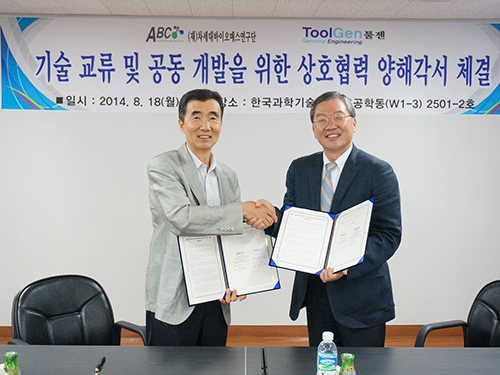 KAIST's Advanced Biomass R&D Center and ToolGen will cooperate
The Advanced Biomass R&D Center (ABC) at KAIST and ToolGen, Inc., a Korean biotechnology company focused on the development of engineered nucleases that can be used as essential tools for editing genetic information in microbial, plant, animal, and human cells, signed a memorandum of understanding (MOU) on August 18, 2014 for technology exchange and research collaboration.
ABC is headed by Executive Director Ji-Won Yang, a professor emeritus at the Department of Chemical and Biomolecular Engineering, and Chief Executive Officer Jong-Moon Kim for ToolGen.
The newly signed MOU encourages collaborations in the following areas:
- Development of genome editing technology for microalgae modification
- Development of microalgae that increases biofuel production through the
application of genome editing technology
- Creation of education and training programs for researchers
- Collaboration in other areas
In addition, the two organizations decided to cooperate in the improvement of biofuel yields using ToolGen’s genome editing technology, the commercialization of research outcomes, and the development of eco-friendly biofuels from biomass.
Executive Director Yang commented that “improving biofuel production is crucial to accelerate the commercialization of biofuels, and collaborating with ToolGen will help us realize that goal.” He further said that “The importance of this MOU lies in the fact that the global chemical industry including Korea has been making substantial efforts to shift its attention from a fossil fuel-based development to a more bio-based technology.”
Jin-Soo Kim, the director of the Genome Editing Research Center at the Institute of Basic Sciences in Korea and the cofounder of ToolGen, added that “ToolGen has successfully commercialized its third generation genetic scissors, which shows a lot of promise for commercialization. Our collaboration with KAIST will serve as the driving force to create new industries and accordingly, new jobs.”
2014.09.03 View 10715
KAIST's Advanced Biomass R&D Center and ToolGen will cooperate
The Advanced Biomass R&D Center (ABC) at KAIST and ToolGen, Inc., a Korean biotechnology company focused on the development of engineered nucleases that can be used as essential tools for editing genetic information in microbial, plant, animal, and human cells, signed a memorandum of understanding (MOU) on August 18, 2014 for technology exchange and research collaboration.
ABC is headed by Executive Director Ji-Won Yang, a professor emeritus at the Department of Chemical and Biomolecular Engineering, and Chief Executive Officer Jong-Moon Kim for ToolGen.
The newly signed MOU encourages collaborations in the following areas:
- Development of genome editing technology for microalgae modification
- Development of microalgae that increases biofuel production through the
application of genome editing technology
- Creation of education and training programs for researchers
- Collaboration in other areas
In addition, the two organizations decided to cooperate in the improvement of biofuel yields using ToolGen’s genome editing technology, the commercialization of research outcomes, and the development of eco-friendly biofuels from biomass.
Executive Director Yang commented that “improving biofuel production is crucial to accelerate the commercialization of biofuels, and collaborating with ToolGen will help us realize that goal.” He further said that “The importance of this MOU lies in the fact that the global chemical industry including Korea has been making substantial efforts to shift its attention from a fossil fuel-based development to a more bio-based technology.”
Jin-Soo Kim, the director of the Genome Editing Research Center at the Institute of Basic Sciences in Korea and the cofounder of ToolGen, added that “ToolGen has successfully commercialized its third generation genetic scissors, which shows a lot of promise for commercialization. Our collaboration with KAIST will serve as the driving force to create new industries and accordingly, new jobs.”
2014.09.03 View 10715 -
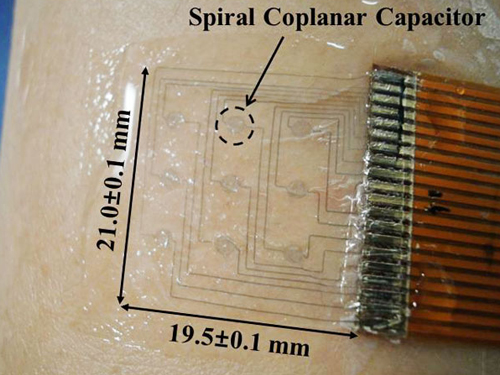 Newsweek: The Goosebump Sensor That Knows How You Feel
Newsweek covered the introduction of the goosebump sensor invented by Professor Young-Ho Cho of the Department of Bio and Brain Engineering at KAIST in an article dated July 27, 2014.
The article entitled “The Goosebump Sensor That Knows How You Feel” explains how the sensor works and reports on the current research and development trends in emotion-sensing technology.
Professor Cho’s research paper was originally published in the journal Applied Physics Letters on June 24, 2014, titled “A Flexible Skin Piloerection Monitoring Sensor."
Newsweek, July 27, 2014
“The Goosebump Sensor That Knows How You Feel”
http://www.newsweek.com/goosebump-sensor-knows-how-you-feel-260689
2014.07.28 View 8427
Newsweek: The Goosebump Sensor That Knows How You Feel
Newsweek covered the introduction of the goosebump sensor invented by Professor Young-Ho Cho of the Department of Bio and Brain Engineering at KAIST in an article dated July 27, 2014.
The article entitled “The Goosebump Sensor That Knows How You Feel” explains how the sensor works and reports on the current research and development trends in emotion-sensing technology.
Professor Cho’s research paper was originally published in the journal Applied Physics Letters on June 24, 2014, titled “A Flexible Skin Piloerection Monitoring Sensor."
Newsweek, July 27, 2014
“The Goosebump Sensor That Knows How You Feel”
http://www.newsweek.com/goosebump-sensor-knows-how-you-feel-260689
2014.07.28 View 8427 -
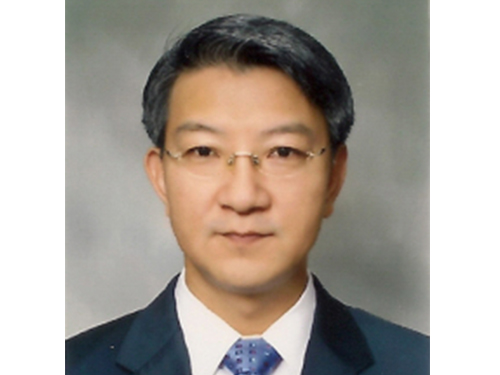 Distinguished Professor Sang Yup Lee Attends World Economic Forum's Workshop
Sang Yup Lee, Distinguished Professor of Chemical and Biomolecular Engineering at KAIST was invited to attend the Technology Pioneer and Global Growth Company CEO Workshop hosted by the World Economic Forum (WEF) on June 19-20, 2014 in San Francisco. During the workshop, Professor Lee joined a discussion on “disruptive technologies” as a panelist.
Currently serving for the evaluation committee that selects technology pioneers for the workshop, during the discussion, Professor Lee identified important issues facing humanity, analyzed the issues through forecasting, and presented converging disruptive technologies that provide solutions to the problems. He also shared the “ten emerging technologies” announced by the Global Agenda Council on Emerging Technologies, WEF and the Korean government’s technology innovation strategies adopted to achieve its economic development policy called creative economy.
2014.06.22 View 8744
Distinguished Professor Sang Yup Lee Attends World Economic Forum's Workshop
Sang Yup Lee, Distinguished Professor of Chemical and Biomolecular Engineering at KAIST was invited to attend the Technology Pioneer and Global Growth Company CEO Workshop hosted by the World Economic Forum (WEF) on June 19-20, 2014 in San Francisco. During the workshop, Professor Lee joined a discussion on “disruptive technologies” as a panelist.
Currently serving for the evaluation committee that selects technology pioneers for the workshop, during the discussion, Professor Lee identified important issues facing humanity, analyzed the issues through forecasting, and presented converging disruptive technologies that provide solutions to the problems. He also shared the “ten emerging technologies” announced by the Global Agenda Council on Emerging Technologies, WEF and the Korean government’s technology innovation strategies adopted to achieve its economic development policy called creative economy.
2014.06.22 View 8744 -
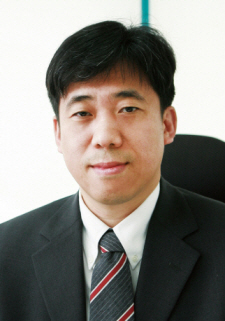 Professor Ki Jun Jeong Selected As the Winner of the 'Young Asian Biotechnologist Prize'
Professor Ki Jun Jeong from the Department of Chemical and Biomolecular Engineering, KAIST, has been selected as the winner of this year’s Young Asian Biotechnologist Prize.
Professor Jeong was invited to the 66th Japan Biotechnology and Bioengineering Society Conference scheduled in September 9th-11th, 2014, in Sapporo, Japan, where his award ceremony will be held.
The award is presented to Professor Jeong in recognition of his outstanding research on microbial-based production of antibodies and efficiency improvement.
The Young Asian Biotechnologist Prize is awarded annually by the Japan Biotechnology and Bioengineering Society to the researchers in Asia under the age of 45, who have achieved excellent research results in the field of bioengineering.
2014.06.14 View 9652
Professor Ki Jun Jeong Selected As the Winner of the 'Young Asian Biotechnologist Prize'
Professor Ki Jun Jeong from the Department of Chemical and Biomolecular Engineering, KAIST, has been selected as the winner of this year’s Young Asian Biotechnologist Prize.
Professor Jeong was invited to the 66th Japan Biotechnology and Bioengineering Society Conference scheduled in September 9th-11th, 2014, in Sapporo, Japan, where his award ceremony will be held.
The award is presented to Professor Jeong in recognition of his outstanding research on microbial-based production of antibodies and efficiency improvement.
The Young Asian Biotechnologist Prize is awarded annually by the Japan Biotechnology and Bioengineering Society to the researchers in Asia under the age of 45, who have achieved excellent research results in the field of bioengineering.
2014.06.14 View 9652 -
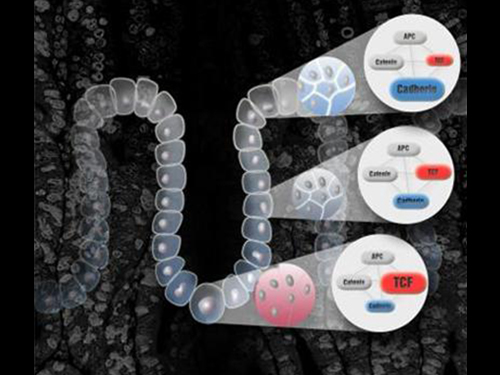 Hidden Mechanism for the Suppression of Colon Cancer Identified
Published in Cell Reports : cells at the risk of causing colorectal cancer due to genetic mutation are discharged outside the colon tissue
Korean researchers have successfully identified the cancer inhibitory mechanism of the colon tissue. The discovery of the inherent defense mechanism of the colon tissues is expected to provide understanding of the cause of colorectal cancer.
The research was led by Kwang-Hyun Cho, a professor of Bio and Brain Engineering at KAIST (corresponding author) and participated by Dr. Jehun Song (the first author), as well as Dr. Owen Sansom, David Huels, and Rachel Ridgway from the Beatson Institute for Cancer Research in the UK and Dr. Walter Kolch from Conway Institute in Ireland.
The research was funded by the Ministry of Science, ICT and Future Planning and the National Research Foundation of Korea, and its results were published in the 28th March online edition of Cell Reports under the title of “The APC network regulates the removal of mutated cells from colonic crypts.”
The organism can repair damaged tissues by itself, but genetic mutations, which may cause cancer, can occur in the process of cell division s for the repair. The rapid cell division s and toxic substances from the digestive process cause a problem especially in colon crypt that has a high probability for genetic mutation.
The research team was able to find out that the colon tissues prevent cancer by rapidly discharging carcinogenic cells with genetic mutations from the colon crypt durin ga frequent tissue repair process.
This defense mechanism, which inhibits abnormal cell division s by reducing the time mutated cells reside in the crypt, is inherent in the colon.
Extensive mathematical simulation results show that the mutated cells with enhanced Wnt signaling acquire increased adhesion in comparison to the normal cells, which therefore move rapidly toward the upper part of the crypt and are discharged more easily.
If beta-catenine, the key factor in Wnt signal transduction pathway, is not degraded due to genetic mutation, the accumulated beta-catenine activates cell proliferation and increases cell adhesion. The special environment of crypt tissue and the tendency of the cells with similar adhesion to aggregate will therefore discharge the mutated cell, hence maintaining the tissue homeostasis.
In vivo experiment with a mouse model confirms the simulation results that, in the case of abnormal crypt, the cells with high proliferation in fact move slower.
Professor Cho said, “This research has identified that multicellular organism is exquisitely designed to maintain the tissue homeostasis despite abnormal cell mutation. This also proves the systems biology research, which is a convergence of information technology and bio-technology , can discover hidden mechanisms behind complex biological phenomena.”
Crypt: Epithelium, consisting of approximately 2,000 cells, forms a colon surface in the shape of a cave.
Wnt Signaling: A signal transduction pathway involved in the proliferation and differentiation of cells that are particularly important for the embryonic development and management of adult tissue homeostasis.
2014.04.17 View 12208
Hidden Mechanism for the Suppression of Colon Cancer Identified
Published in Cell Reports : cells at the risk of causing colorectal cancer due to genetic mutation are discharged outside the colon tissue
Korean researchers have successfully identified the cancer inhibitory mechanism of the colon tissue. The discovery of the inherent defense mechanism of the colon tissues is expected to provide understanding of the cause of colorectal cancer.
The research was led by Kwang-Hyun Cho, a professor of Bio and Brain Engineering at KAIST (corresponding author) and participated by Dr. Jehun Song (the first author), as well as Dr. Owen Sansom, David Huels, and Rachel Ridgway from the Beatson Institute for Cancer Research in the UK and Dr. Walter Kolch from Conway Institute in Ireland.
The research was funded by the Ministry of Science, ICT and Future Planning and the National Research Foundation of Korea, and its results were published in the 28th March online edition of Cell Reports under the title of “The APC network regulates the removal of mutated cells from colonic crypts.”
The organism can repair damaged tissues by itself, but genetic mutations, which may cause cancer, can occur in the process of cell division s for the repair. The rapid cell division s and toxic substances from the digestive process cause a problem especially in colon crypt that has a high probability for genetic mutation.
The research team was able to find out that the colon tissues prevent cancer by rapidly discharging carcinogenic cells with genetic mutations from the colon crypt durin ga frequent tissue repair process.
This defense mechanism, which inhibits abnormal cell division s by reducing the time mutated cells reside in the crypt, is inherent in the colon.
Extensive mathematical simulation results show that the mutated cells with enhanced Wnt signaling acquire increased adhesion in comparison to the normal cells, which therefore move rapidly toward the upper part of the crypt and are discharged more easily.
If beta-catenine, the key factor in Wnt signal transduction pathway, is not degraded due to genetic mutation, the accumulated beta-catenine activates cell proliferation and increases cell adhesion. The special environment of crypt tissue and the tendency of the cells with similar adhesion to aggregate will therefore discharge the mutated cell, hence maintaining the tissue homeostasis.
In vivo experiment with a mouse model confirms the simulation results that, in the case of abnormal crypt, the cells with high proliferation in fact move slower.
Professor Cho said, “This research has identified that multicellular organism is exquisitely designed to maintain the tissue homeostasis despite abnormal cell mutation. This also proves the systems biology research, which is a convergence of information technology and bio-technology , can discover hidden mechanisms behind complex biological phenomena.”
Crypt: Epithelium, consisting of approximately 2,000 cells, forms a colon surface in the shape of a cave.
Wnt Signaling: A signal transduction pathway involved in the proliferation and differentiation of cells that are particularly important for the embryonic development and management of adult tissue homeostasis.
2014.04.17 View 12208 -
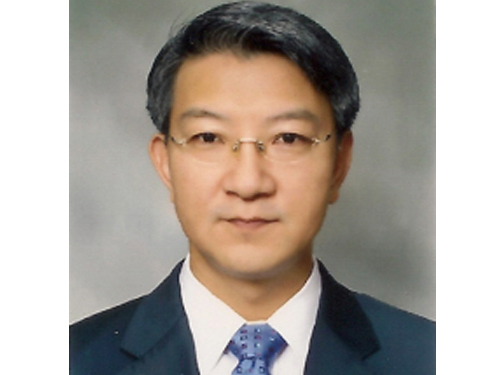 Professor Sang-Yup Lee Named the Winner of the Ho-Am Prize in 2014
The Ho-Am Prize, awarded by Samsung Group’s Ho-Am Foundation, was announced on April 2, 2014 in Seoul. Professor Sang-Yup Lee of Chemical and Biomolecular Engineering at KAIST was among the five recipients.
The prize is presented to Koreans who have made great contributions to the development of Korea in the field of science, engineering, medicine, arts, and philanthropy.
Professor Lee received the award in recognition of his pioneering research on systems metabolic engineering.
For the story written by Korea Joongang Daily, please go to the link below:
Ho-Am Foundation Names Annual Prize Winners
Korea Joongang Daily
April 3, 2014
http://koreajoongangdaily.joins.com/news/article/Article.aspx?aid=2987332
2014.04.03 View 10051
Professor Sang-Yup Lee Named the Winner of the Ho-Am Prize in 2014
The Ho-Am Prize, awarded by Samsung Group’s Ho-Am Foundation, was announced on April 2, 2014 in Seoul. Professor Sang-Yup Lee of Chemical and Biomolecular Engineering at KAIST was among the five recipients.
The prize is presented to Koreans who have made great contributions to the development of Korea in the field of science, engineering, medicine, arts, and philanthropy.
Professor Lee received the award in recognition of his pioneering research on systems metabolic engineering.
For the story written by Korea Joongang Daily, please go to the link below:
Ho-Am Foundation Names Annual Prize Winners
Korea Joongang Daily
April 3, 2014
http://koreajoongangdaily.joins.com/news/article/Article.aspx?aid=2987332
2014.04.03 View 10051 -
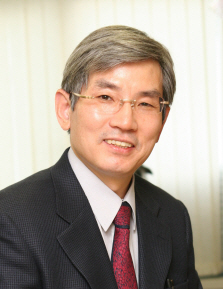 Professor Huen Lee to Receive Lifetime Achievement Award from the International Conference on Gas Hydrates
Professor Huen Lee of the Chemical and
Biomolecular Engineering Department at KAIST will receive a lifetime
achievement award at the 8th International Conference on Gas
Hydrates (ICGH) to be held from July 28, 2014 to August 2, 2014 in Beijing,
China.
Among his other scholarly and research accomplishments, Professor Lee achieved the development of natural gas by injecting
carbon dioxide and nitrogen into the layers of gas hydrates. With this
technology, ConocoPhilips, an American multinational energy corporation,
successfully extracted natural gas from the gas hydrates in the North Slope of
Alaska in the US in April 2012.
Meeting every three years in a different
country around the world, ICGH is a leading gathering of scientists and
engineers in gas hydrates. The 8th conference will be held under the
theme of “Opportunity and Challenge-Development and Utilization of Gas
Hydrates.”
2014.03.25 View 7858
Professor Huen Lee to Receive Lifetime Achievement Award from the International Conference on Gas Hydrates
Professor Huen Lee of the Chemical and
Biomolecular Engineering Department at KAIST will receive a lifetime
achievement award at the 8th International Conference on Gas
Hydrates (ICGH) to be held from July 28, 2014 to August 2, 2014 in Beijing,
China.
Among his other scholarly and research accomplishments, Professor Lee achieved the development of natural gas by injecting
carbon dioxide and nitrogen into the layers of gas hydrates. With this
technology, ConocoPhilips, an American multinational energy corporation,
successfully extracted natural gas from the gas hydrates in the North Slope of
Alaska in the US in April 2012.
Meeting every three years in a different
country around the world, ICGH is a leading gathering of scientists and
engineers in gas hydrates. The 8th conference will be held under the
theme of “Opportunity and Challenge-Development and Utilization of Gas
Hydrates.”
2014.03.25 View 7858